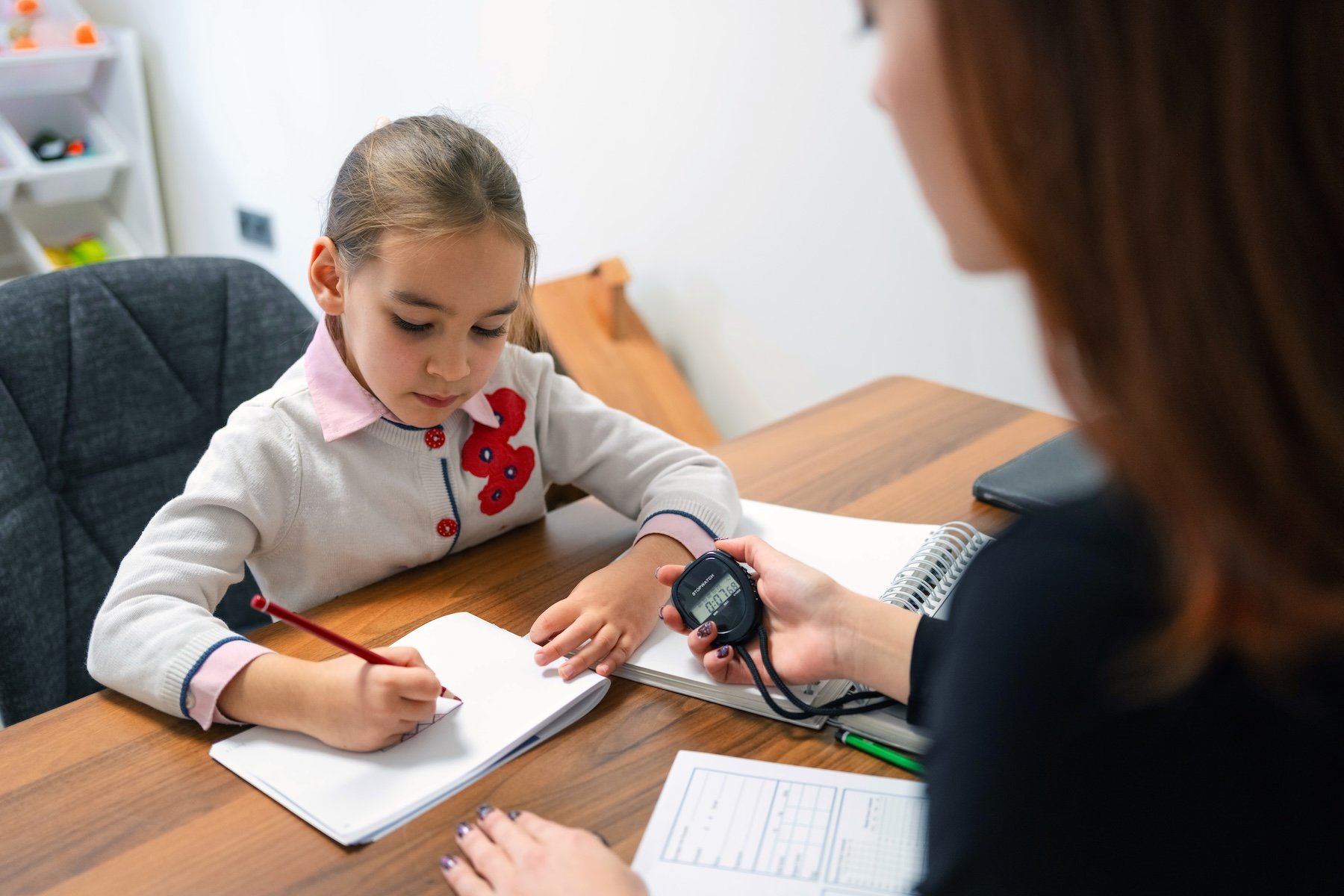
Let's help our kids find their own path to success while celebrating their journey.
Which Student Service are you seeking?
One-on-One OG Lessons
We offer 1 to 1 specialized Orton-Gillingham lessons by our team of fully qualified Orton-Gillingham Practitioners, supervised by certified Orton-Gillingham Supervisors and Trainers. Lessons can occur a minimum of 2 times per week or up to 5 times per week. More frequent lessons will have a greater impact on learning. Remedial lessons can be arranged between the hours of 10am to 7pm Monday through Friday, school term. Intensive lessons can be arranged weekly during the summer months.
Contact your local Reach Centre by clicking one of the location links below to learn more.
Group OG Lessons
This small group writing program is designed to help children develop their written language skills. This group is aimed to support students in upper elementary grades to develop their writing skills in a very small group, risk-free environment. With systematic, sequential, multisensory teaching, the first module will focus on creating a risk-free environment while working on basic grammatical concepts, correct use of punctuation and capitalization, sentence structure and expanded sentences.
To determine if your local Reach Centre offers group OG, please contact them directly by clicking one of the location links below.
Summer Programs
Help your child avoid the “big slide” that occurs with the long summer break, or take advantage of the opportunity for intensive intervention by joining us for our summer programs. If your child has been struggling to succeed with basic literacy skills, with or without a diagnosed learning difficulty, Reach programs can help. Our specialists understand learning difficulties and students who struggle with learning in general. Visit the Reach centre nearest you to find out about our weekly summer programs.
Click here to find out more.
Assessments
To better understand struggles with learning, families may be seeking an assessment with their child. Different assessments help families, educators, and professionals understand if there is a problem and, in many cases, why that problem may be occurring. Assessments do not “label” a child but rather are documents that can be used to better understand how to support a child either in school, at home, or with interventions.
REACH OG Learning Centre is able to conduct assessments or refer to a variety of different assessors to help families understand the areas of literacy or math with which their child may be struggling. Commonly, families may be seeking either an academic skills-based assessment (sometimes called “Level B” assessments), a speech-language assessment, a psycho-educational assessment, or a neuropsychological assessment. The differences in these assessments include the training of the assessor varying from Level B credentials and post-graduate level coursework to Masters degrees, PhDs and PhDs with neuropsych coursework.
-
Academic assessments, or “Level B” assessments, are conducted using standardized assessment tools and can help pinpoint gaps in reading, writing or math development in relation to age-based standardized norms. These assessments allow families to clearly understand if their child has gaps in their academic achievement, to monitor progress, or to determine if there is a need for further assessment with an educational psychologist. These are available upon request at our North Vancouver office with Corey Zylstra, M.Ed. Depending on the assessment tools used, fees for this kind of assessment range from $500 to $750. Contact us for more information about academic assessments at REACH.
Informal assessments, such as the traditional "Orton-Gillingham Diagnostic" informal assessment, or curriculum-based measures, guides intervention provided at REACH and helps to monitor student progress. At REACH OG Learning Centres, every student is provided an academic or skills-based informal assessment when they first register for ongoing 1:1 intervention lessons. The cost of this assessment is $249.
-
Reach doesn’t offer full psycho-educational assessments through our centres at this time.
These types of assessments will help a family better understand their child's struggles with learning. If conclusions can be drawn as to why the problems are occurring, a diagnosis may be made. Some schools may be able to forward a child’s name to the school-based resource team to request an assessment. This waitlist for a school-funded assessment is often lengthy (a year or more) and is used to determine if a child meets the education ministry designation for services, which is different from a medical diagnosis. A private assessment from an educational psychologist may result in a medical diagnosis, which must meet certain criteria laid out by the DSM-5. A private assessment can be held at the discretion of the family, may be forwarded to the school for their application to a ministry designation, and may also help families seeking to advocate for supports or accommodations with their schools, or to access tax credits through CRA such as the disability tax credit. Since these kinds of assessments must include academic and cognitive assessment measures, they must be conducted by a registered psychologist.
Some extended health plans cover some or all of the costs of a private assessment, so it’s helpful for families to check for their provision of services with their extended health benefits provider. We are happy to refer families to educational psychologists in our community. In addition to referrals to psychologists in our community, there is a registry of BC Psychologists found here. Fees for private assessments range from $1800 to over $3000.








